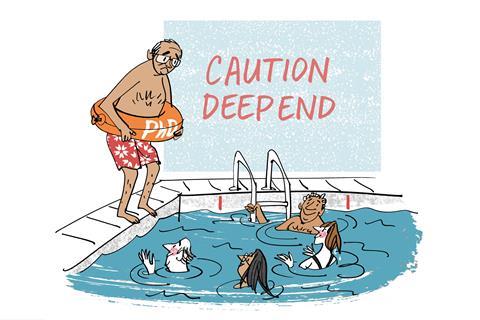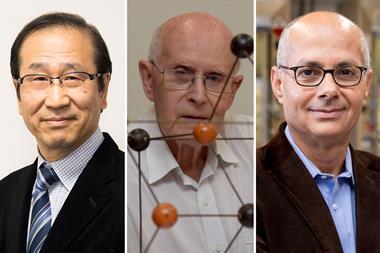How a reality check, a little patience and a lot of polysaccharides shaped my scientific journey

When I submitted my PhD thesis, I was somewhere above cloud nine – possibly cloud ten. I was convinced the next logical step would be revolutionising biochemistry, publishing something in Nature, curing a disease or two and casually collecting a Nobel prize before I turned 50. I even practised my acceptance speech in the shower.
Then reality introduced itself.
It took me a whole year to land my first job as a postdoc. Apparently, changing the world is slightly harder when no one’s hiring – or at least, not hiring you.
The wilderness year
Fresh from completing my PhD in analytical biochemistry at the University of Huddersfield, UK, where I worked on isolating and characterising exopolysaccharides – complex sugars produced by beneficial gut bacteria, I was armed with what felt like every analytical technique under the sun. The kind with names that look more like Wi-Fi passwords: GC-MS, HPAEC-PAD, HP-SEC-MALLS, HPLC and NMR. It was a true biochemist’s buffet – impressive to specialists, mysterious to everyone else.
Yet for months, I found myself refreshing job portals and getting very good at explaining to my family why ‘still no job yet, and ‘again regret email’ didn’t mean that doing a PhD was a mistake.
Into the lab (again)
Eventually, I was offered a postdoc position at the University of Huddersfield. Suddenly, I was designing experiments instead of just running them.
It was a mix of old and new. I knew the lab environment, but the responsibility was different. There’s a shift that happens when you realise your results don’t just matter to your degree – they’re tied to someone else’s funding, deadlines and expectation.
It felt like learning to swim all over again – only this time in the deep end, with people watching.
Crossing disciplines and wires
My postdoc extended naturally from my doctoral work, but the context had changed.
I found myself collaborating across departments – food science, pharmacy, chemical engineering – and occasionally even venturing into materials science territory. That collaboration forced me to learn a new language – one where ‘spin’ didn’t mean centrifuge, and ‘bandgap’ wasn’t a weird protein term I’d missed in school. I had to adapt to unfamiliar methods and figure out how to communicate my work to people who didn’t necessarily care about sugar linkages, but cared very much about the materials those sugars influenced.
It wasn’t always smooth, but it was invigorating.
What I really learned
The technical skills were only part of it; the real lessons came from elsewhere. I learned how to manage lab chaos, handle uncertainty and mentor students without spoon-feeding them. I developed strategies to keep morale afloat when experiments went sideways and navigate the unspoken expectations of academia. I gained confidence in my ability to contribute beyond the bench.
Perhaps most importantly, I learned when to laugh at myself – like the time I accidentally ran a sample upside down on a gel, or when I carefully labelled all my tubes, only to realise I’d written the exact same label on all of them. Or the time I learned the hard way that not everything is autoclavable – may that plastic flask rest in molten peace.
A role I didn’t expect to love
That postdoc laid the foundation for my current role as a research technician at the University of Leeds, UK. I support research across a suite of laboratories in the school of physics and astronomy – not exactly where you’d expect a biochemist to end up, perhaps, but interdisciplinary science clearly enjoys a plot twist.
In this role, I oversee laboratory spaces, induct new users, ensure equipment is running smoothly, and uphold safety protocols (because nothing disrupts a good experiment like an unexpected fire drill). I help researchers and students gain practical experience in controlled lab spaces, turning complex protocols into confident practice. It’s a role that keeps me on my toes – and happily immersed in the collaborative heart of science.
While I may have swapped sugar linkages for superconductors on some days, I still rely heavily on the same analytical instincts and technical toolkit I developed during my PhD and postdoc – whether it’s troubleshooting a temperamental instrument or collaborating on cross-disciplinary projects. Being fluent in ‘biochemist’ makes you surprisingly useful in a room full of physicists.
Looking back (and slightly up)
My first postdoc didn’t lead me straight to Stockholm, but it gave me something better: perspective. It reminded me that scientific success isn’t measured only in papers or prizes, but in persistence, adaptability and the ability to lift others along the way. It also reminded me that the most valuable things we discover aren’t always in a test tube – sometimes, they’re what we learn about ourselves.
If you’re fresh out of your PhD and wondering why your inbox looks more like a ‘thanks, but no thanks’ compilation of rejection emails, don’t lose hope – better days are coming and you’re definitely not alone.
And maybe hold off on writing your Nobel speech – just for now.












No comments yet